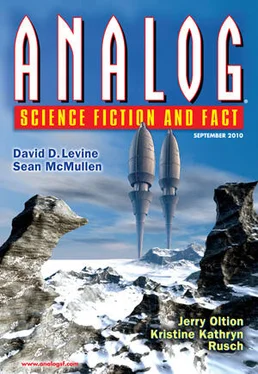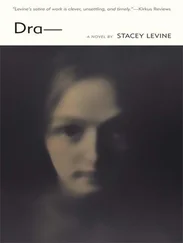David Levine - Pupa
Здесь есть возможность читать онлайн «David Levine - Pupa» весь текст электронной книги совершенно бесплатно (целиком полную версию без сокращений). В некоторых случаях можно слушать аудио, скачать через торрент в формате fb2 и присутствует краткое содержание. Год выпуска: 2010, Издательство: Dell Magazines, Жанр: Фантастика и фэнтези, на английском языке. Описание произведения, (предисловие) а так же отзывы посетителей доступны на портале библиотеки ЛибКат.
- Название:Pupa
- Автор:
- Издательство:Dell Magazines
- Жанр:
- Год:2010
- ISBN:нет данных
- Рейтинг книги:4 / 5. Голосов: 1
-
Избранное:Добавить в избранное
- Отзывы:
-
Ваша оценка:
- 80
- 1
- 2
- 3
- 4
- 5
Pupa: краткое содержание, описание и аннотация
Предлагаем к чтению аннотацию, описание, краткое содержание или предисловие (зависит от того, что написал сам автор книги «Pupa»). Если вы не нашли необходимую информацию о книге — напишите в комментариях, мы постараемся отыскать её.
Pupa — читать онлайн бесплатно полную книгу (весь текст) целиком
Ниже представлен текст книги, разбитый по страницам. Система сохранения места последней прочитанной страницы, позволяет с удобством читать онлайн бесплатно книгу «Pupa», без необходимости каждый раз заново искать на чём Вы остановились. Поставьте закладку, и сможете в любой момент перейти на страницу, на которой закончили чтение.
Интервал:
Закладка:
As they made their way, they conversed in a halting and tentative fashion.
If you are a juvenile, where is your parent? At least, that’s what Ksho thought the alien was trying to ask. The translation device kept insisting that “parent” was plural.
“Ksho’s parent is dead,” Ksho replied.
The alien expressed unhappiness at the news, though its flavor didn’t change. Who takes care of you?
“No one takes care of Ksho now. Ksho must care for herself and her siblings.” She didn’t mention—didn’t want to think about—the fact that when she pupated she would probably die, and her helpless siblings along with her. She was just trying to cope with one day at a time.
That seems cruel, the alien said.
The alien’s statement surprised Ksho. She hadn’t thought that an alien might have any concern for the fate of one Shacuthi juvenile. Then she considered the fact that the small alien was the only juvenile she had seen in all the time she’d spent on this planet, and all the adult aliens seemed to treat it with astonishing deference. Juveniles here must be very rare and precious. “Shacuthi juveniles are not important,” she said. “They hatch in great numbers and are put to work. Only a few survive to adulthood.”
That took a long time to explain.
The alien’s reply took even longer for Ksho to understand. So long, in fact, that the two of them had to sit down together at one side of the long narrow room they were moving through, the hard floor tasting of stone and solvents. Large aliens moved by as they talked, staring at the alien and Shacuthi juveniles in conversation, but Ksho barely noticed because what the small alien said demanded so much concentration to understand.
The aliens, it seemed, had several different tribes, or clans, differentiated by lightness or darkness of skin. The small alien, with its dark skin, belonged to a clan that had in the past been considered inherently inferior to another, pale-skinned, clan. “Speaker (possessive) clan believe (denial, past tense, passive) person (plural),” the alien said. My clan was not thought to be people . But members of the dark clan, together with some members of the pale clan, had insisted over and over, across many generations, that they deserved to be treated like people—like Shacuthi adults rather than like juveniles. After a long time they had seen some success. In fact, the small alien’s parent, a member of the dark clan, was the leader of this entire part of the planet—a very powerful alien indeed, with authority over pale and dark aliens alike. This was not a perfect situation, the small alien said, but it was an improvement over what had come before.
And then the alien said something that seemed very important to it. “Important dark-clan leader Yeh-seh-yak-sung (proper name) write (past tense) famous ancestor-song.” Then its strange eyes widened, it leaned forward, and its burbling water voice deepened in pitch. Its words had a formal cadence, though they didn’t sound like any ancestor-song Ksho had ever heard before:
“Speaker equivalence (assertion) significant-person.
“Speaker equivalence (assertion) significant-person.
“Speaker equivalence (provisional assertion) impoverished.
“But speaker equivalence (assertion) significant-person.
“Speaker equivalence (provisional assertion) juvenile.
“But speaker equivalence (assertion) significant-person.
“Speaker equivalence (provisional assertion) (untranslatable).
“But speaker equivalence (assertion) significant-person.
“Speaker equivalence (provisional assertion) small.
“But speaker equivalence (assertion) significant-person …”
It went on like that for a while. Ksho didn’t understand all of it, but the message was clear and it was obviously very meaningful to the alien.
The ancestor-song ended with yet another repetition of “Speaker equivalence (assertion) significant-person.” Then the alien bent, laid one hand on Ksho’s flank, and said “Listener comprehension (query).” Do you understand?
It was the first time Ksho had been touched by an alien, but she didn’t flinch away—the touch was firm but not hostile, cool but not cold. It didn’t seem to fit with the alien’s lengthy assertion of its own significance. “Ksho understands,” she said, “that you are a significant person.”
Upon hearing the translation the alien seemed to become upset, standing up and turning in a small circle before sitting down again. This time it placed both hands on Ksho’s skin and leaned in even closer. “Listener (emphatic),” it said. “Listener (emphatic) equivalence (strong assertion) significant- person.” You! It is you that is significant!
Ksho tasted her own surprise and disbelief. Ksho was not significant.
“Repeat (imperative) speaker (possessive) statement,” the alien said. Repeat my statement.
The command was clear, so Ksho complied, although she didn’t believe it. “Ksho is significant.”
The alien closed its eyes and struck itself on the forehead with both closed hands, an extremely peculiar gesture. “Listener equivalence (strong denial) three (ordinal). Listener equivalence (assertion) name speaker (personal pronoun).” They went back and forth on that one several times before Ksho understood what the alien meant: You are not “number three.” You are “I.”
“Repeat (imperative) speaker (possessive) statement comprising name speaker (personal pronoun),” the alien said.
“I am significant,” Ksho said.
It was the first time she had ever used the personal pronoun, “I,” for herself. It was wrong… ungrammatical, inappropriate, a violation of propriety. It made her feel strange even to form the words without meaning them.
“Repeat (imperative) statement,” the alien insisted.
“I am significant.” It felt a little less strange the second time. There was, after all, nothing extraordinary about the sentence itself… Ksho had heard sentences like that all her life, just never from a juvenile. “I” was for adults.
But Ksho was almost an adult. Ksho was not only nearly ready to pupate, as the constant ache in her bones reminded her… she was responsible for the care of her siblings.
“Repeat (imperative),” the alien said again.
“I am significant.”
This time she began to believe it.
This time… I began to believe it.
Ksho… I … was acting as an adult, and must take on adult ways of thinking and speaking.
“I am significant,” I said again. I.
I.
“Listener equivalence (assertion) significant-person,” the alien concurred, tipping its head up and down.
Ksho realized that much time had passed, and the containers of food in her panniers had grown cold. “I must return to Ksho’s… to my siblings,” she said.
I. I said.
“Affirmation. Return (imperative). Remember (imperative) listener equivalence (assertion) significant-person.”
“I will remember. I am significant.”
I hauled myself up from where I had sat for so long on the alien’s hard floor. During that long conversation Ksho’s hunger had begun to return and the ache of impending pupation had grown even stronger. But I knew Ksho’s siblings would be even more hungry. I had to hurry.
Returning through the portal, seeing the encampment again, Ksho felt herself returning to old ways of thought. The air here, which had felt so cold before, now seemed warm and full of familiar flavors; the normal gravity was a great relief. But the weight of the two containers of alien food in… my panniers reminded me that I was now an adult, in terms of responsibility, if not physically. I could not relax into old habits; I had no adult to feed and protect me or my siblings.
Читать дальшеИнтервал:
Закладка:
Похожие книги на «Pupa»
Представляем Вашему вниманию похожие книги на «Pupa» списком для выбора. Мы отобрали схожую по названию и смыслу литературу в надежде предоставить читателям больше вариантов отыскать новые, интересные, ещё непрочитанные произведения.
Обсуждение, отзывы о книге «Pupa» и просто собственные мнения читателей. Оставьте ваши комментарии, напишите, что Вы думаете о произведении, его смысле или главных героях. Укажите что конкретно понравилось, а что нет, и почему Вы так считаете.












